The Poor House: Before Pics
Here are some BEFORE pictures of The Poor House:

Front of House

Back of House
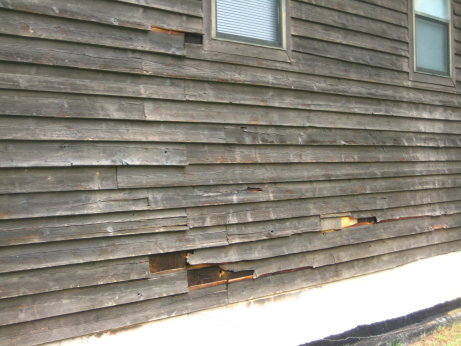
Siding on Back of House

Back Deck

Entryway of House (from Living Room)

Living / Dining Rooms (from Top of Entryway)
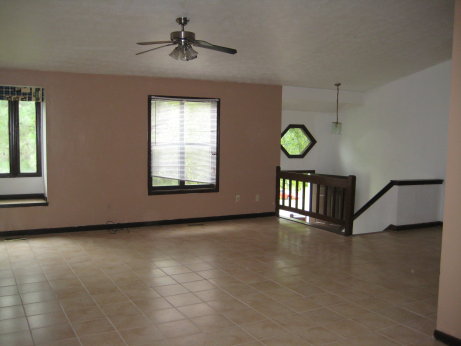
Living Room (from Dining Room)

Kitchen
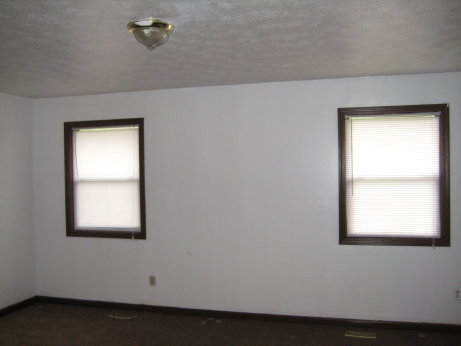
Master Bedroom
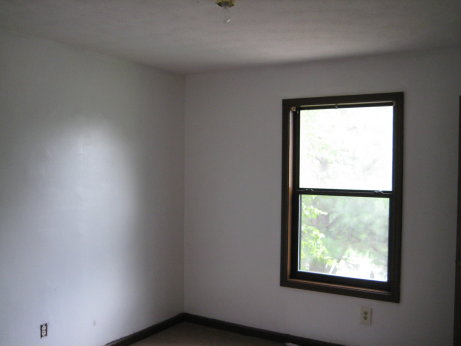
Bedroom #2 / #3
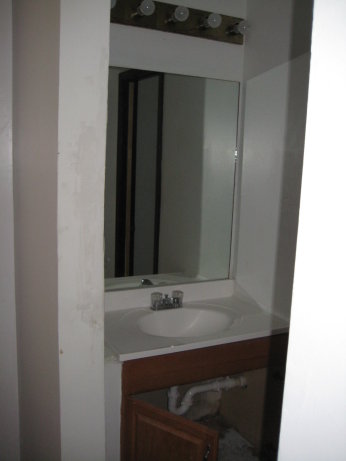
Master Bathroom Vanity
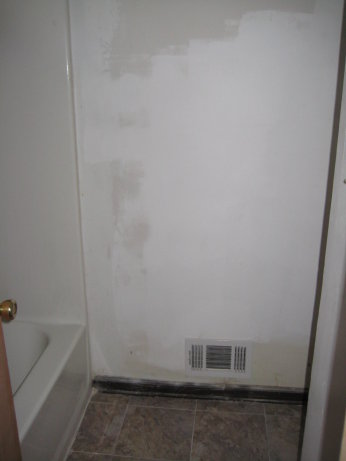
Master Bathroom Toilet/Shower Area
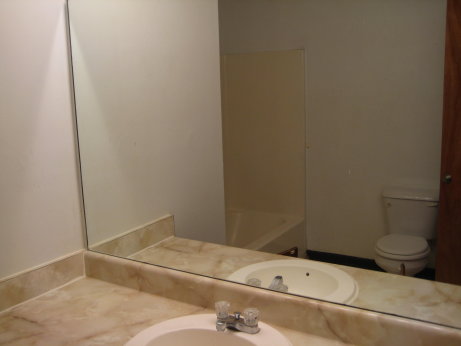
Guest Bathroom

Basement Room with Mold

Basement Waterproofing Problems

Back Yard (from Deck)




J- when you do mold remediation, would you mind sharing what steps you follow (unless you already have that posted somewhere and I missed it)?
Assuming the source of the moisture is fixed, do you primarliy cut out the moldy drywall, then use Kilz or something similar to seal the studs and then simply close it back up? Or do you do a full-blown remediation with a Hepa-vac, etc.? Do you typically have any testing done or the ductwork cleaned or anything like that?
We have gotten a ton of rain this year in my area and I have looked at a number of houses lately with mold issues in the basement. I’ve been doing a lot of internet research on it lately, but would love to hear from someone with recent experience in it..
Thanks in advance!
Owen –
It really depends on the extent of the mold and the source. For minor mold issues that are likely caused by excess moisture from lack of ventilation (REOs can be closed up for many months at a time), we’ll clean the drywall with bleach, throw some Kilz over it, and call it a day.
For anything even potentially serious, we’ll have our mold guys come in and do an evaluation. Sometimes they’ll recommend cutting out the drywall, and being done with it. Sometimes they’ll recommend cutting out the drywall, drying the studs (if the studs are wet, the mold will never go away), and sometimes (like in The Sunglasses House) we’ll cut out the drywall, bring in the hepa-vac for a day or two, dry the studs, etc.
I don’t know enough about mold yet to make these kinds of determinations on my own, but my general attitude is that remediating the core issue is the most important thing, and then let the mold experts make a recommendation on what to do with the existing mold that’s left behind.
Do you plan on keeping the kitchen cabinets or replacing them?
The cabinets are in very good shape, but considering that we’ll be updating everything else in the house, I would hate for the 20 year old cabinets to stick out as the only thing that wasn’t updated. We can get our typical 42″ cherry-stained cabinets and granite-looking countertops installed for exactly $3K in this house, and I think that is money very well spent, so that’s what we plan to do.
We may tear out part of the kitchen wall as well to open it up a bit…
If you want you could save the current cabinets and use them in another project.
Alex –
Because I don’t hold rentals, I’m not sure that I would have much use for these in another property (I wouldn’t put them in a rehab property). Also, the extra expense of removing them without breaking them and then storing them just isn’t worth it for us.
That said, we will likely put an ad on Craigslist for someone to come take them away (they’d have to remove them themselves). This will save us the demo cost and the dumpster space.
So if there is a lot of mold say in the whole basement, drywall, studs, concrete wall, etc. it sounds like you would have the GC pretty much gut the place, leaving HVAC, softenre, water heater, and other mechanicals. Dry up the place and then have a mold expert tell you if you need to do more? Do you ever test to see if it’s black mold before buying the house? Or mold is mold?